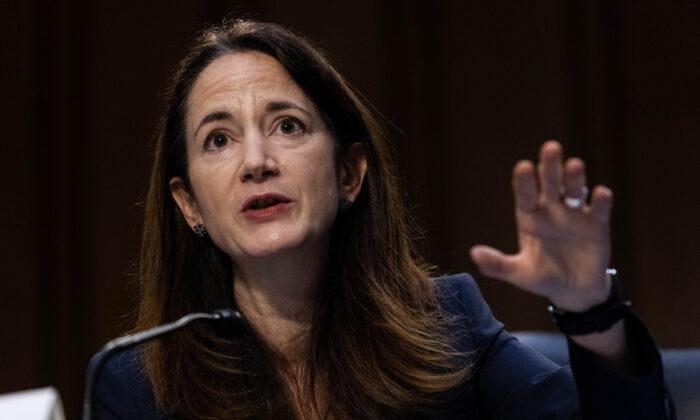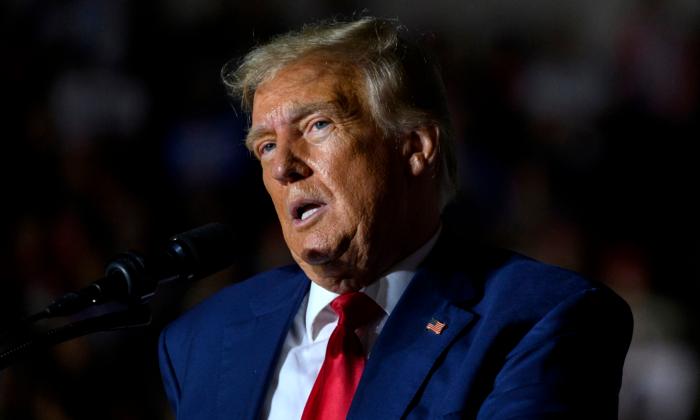The Chinese regime is on its way to becoming a “near-peer competitor” for the United States and is the “unparalleled priority” for the country’s intelligence community, the U.S. director of national intelligence (DNI) said on April 14.
“China increasingly is a near-peer competitor, challenging the United States in multiple areas while pushing to revise global norms in ways that favor the authoritarian Chinese system,” Director of National Intelligence Avril Haines said at a Senate Select Committee on Intelligence hearing in her first public testimony since being confirmed in January.
The regime “poses an increasingly formidable challenge to the U.S. role in global affairs.”
Haines noted the regime’s “substantial” cyber-capabilities that, if used, “at a minimum can cause localized temporary disruptions” to critical infrastructure in the United States.
CIA Director William Burns, at the April 14 hearing, described competition in technology, such as 5G and semiconductors, as at the “core of our rivalry with an increasingly adversarial Chinese Communist Party and Chinese leadership.”
On the question of how the COVID-19 pandemic originated, Haines confirmed that the intelligence community doesn’t have an answer. She acknowledged the two alternative theories about how it spread—by transmission from animals or through a lab leak—adding that agencies were continuing to collect information to try to get to the bottom of the question.
Burns said, “One thing that’s clear to us ... is that Chinese leadership has not been fully forthcoming or fully transparent in working with the WHO or in providing the kind of original, complete data that would help answer those questions [about the virus origins].”
The DNI report released on April 13 stated that the ruling Chinese Communist Party will press “whole-of-government efforts to spread China’s influence, undercut that of the United States, [and] drive wedges between Washington and its allies and partners.”
It also stated that the regime’s intelligence and influence operations, as well as election interference efforts, were expanding.
“Beijing has been intensifying efforts to shape the political environment in the United States to promote its policy preferences, mold public discourse, pressure political figures whom Beijing believes oppose its interests, and muffle criticism of China on such issues as religious freedom and the suppression of democracy in Hong Kong,” the report states.
FBI Director Christopher Wray said Beijing uses a variety of tactics to influence American elites at all levels.
“The tools in their toolbox to influence our businesses, our academic institutions, our governments at all levels are deep and wide and persistent,” he said at the April 14 hearing.





